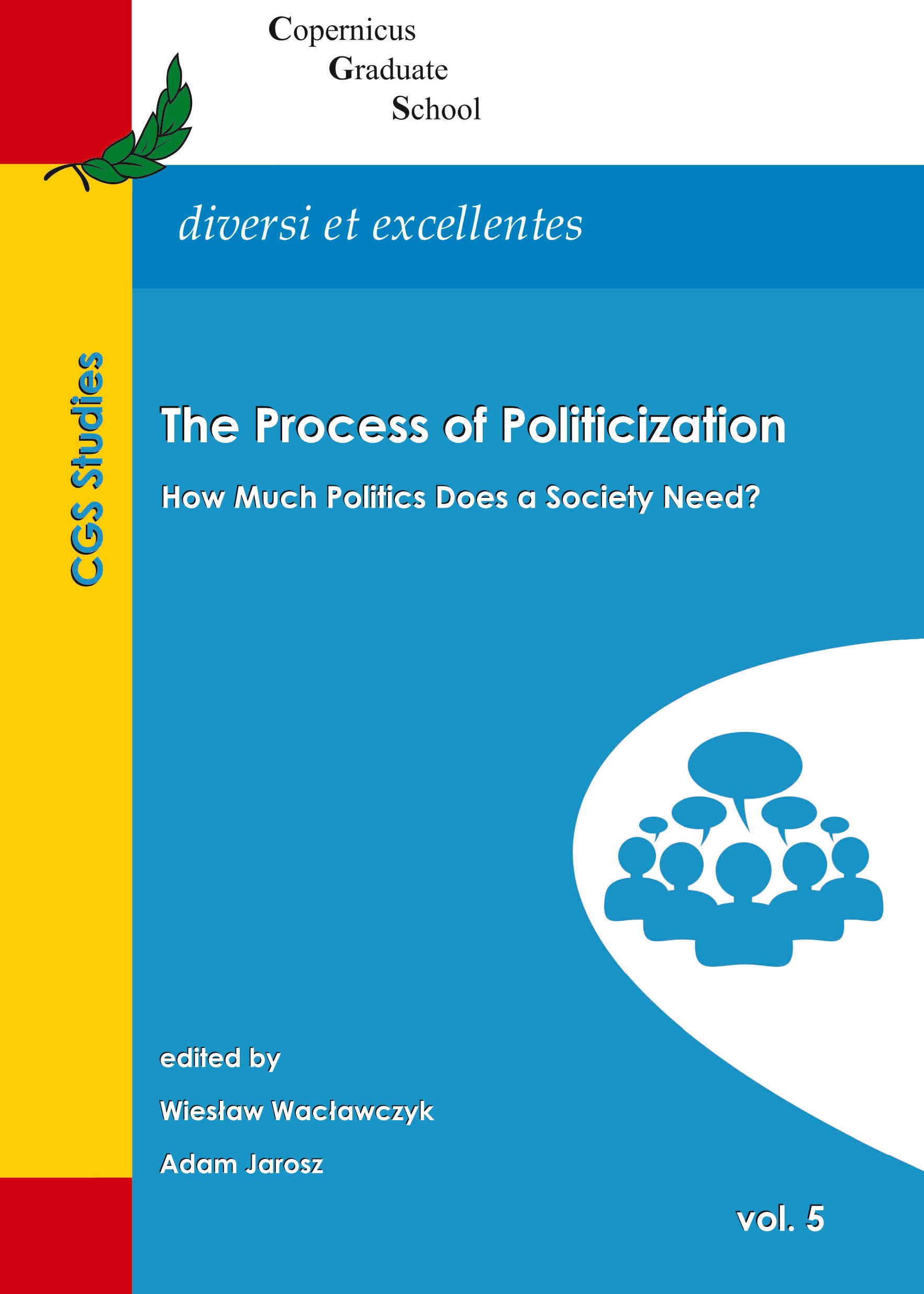Copernicus Graduate School Studies (CGS Studies)
CGS Studies is a series of scientific books which are the output of the work of the Copernicus Graduate School. CGS is modern, international and interdisciplinary young scientists network, who work under the guidance of internationally acknowledged fellows.
The series is devoted to questions and research problems considering modern societies in comparative perspective. Mostly young scientists together with their experienced tutors develop various approaches to the position and functionality of civil society, examining different examples from history and the present based on the different theoretical approaches. As a result, interdisciplinary perspectives have been developed which enable the identification of various levels of the issues considered.
The books do not provide fixed interpretation patterns. The aim of the editors and authors, as well as the main objective of the volumes, is to refresh and stimulate the discussion together with pointing out exemplary fields of research which bring interesting explanations and impulses to the formulation of innovative research questions on the modern societies.
Ralph Schattkowsky is professor and head of the International Relations History Department at the Faculty for Political Sciences and International Studies at the Nicolaus University in Toruń (Poland). He is also head of the board of the Copernicus Graduate School and associated professor at the University of Rostock (Germany).
His scientific interests concentrate on German-Polish relations, history of Central and Eastern Europe, nationalism and civil society.
Miloš Řezník is Director of the German Historical Institute in Warsaw (since 2014), since 2009 Professor of European Regional History at the University of Chemnitz (Germany) (2009–2014 Vice-Dean of the Faculty of Arts); since 2009 Co-Chair of the Czech-German Historians‘ Commission.
His fields of research are Polish history, Habsburg monarchy, nation-building, collective identities, historical memory, elites; late 18th-early 20th century.
Managing editor:
Adam Jarosz, PhD, is a researcher and teacher at the University of Zielona Góra (Poland) and the scientific secretary of the Copernicus Graduate School.
His scientific interests concentrate on local governments with a focus on cities, governance and social participation at the local level, border regions, German history and current issues, German-Polish relations and systemic transformation after 1989, as well as the position of the president in the Polish political system.

















